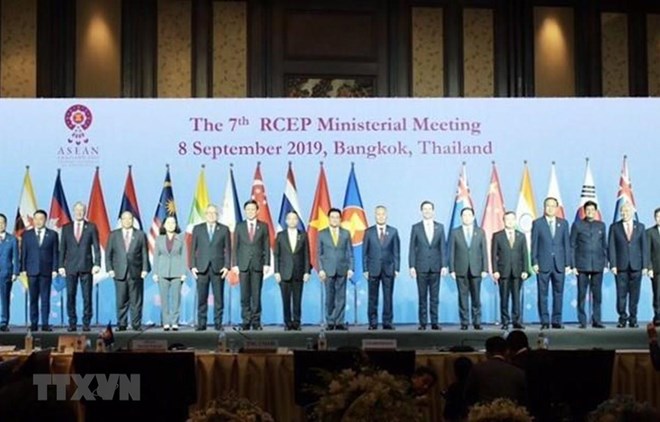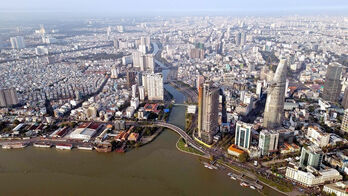
The 7th Regional Comprehensive Economic Partnership (RCEP) ministerial meeting took place in Bangkok, Thailand on September 8 (Photo: VNA)
The meeting between the 10 members of ASEAN and their six partners of India, the Republic of Korea, Japan, New Zealand, Australia and China, was held on the sidelines of the 51st ASEAN Economic Ministers’ Meeting (AEM 51).
At the ministerial meeting, ministers put forward orientations and instructions for delegations in the upcoming round of talks.
Notably, in preparation for ASEAN Chairmanship in 2020, Vietnam will host the 28th round of RCEP talks in the central city of Da Nang from September 19 to 27, which will be the last one prior to the ASEAN summit later this year.
After 27 formal sessions and many midterm ones of RCEP talks, the countries have reached conclusion on the Chapters on Economic and Technical Cooperation, Small and Medium Enterprises, Customs Procedures and Trade Facilitation, and Government Procurement, among others.
To date, the countries have narrowed the gap in their viewpoints in chapters on trade in goods, trade remedies, trade in services, trade in financial, investment and intellectual property.
From the start of 2019, ASEAN countries and partners have launched measures to address bottlenecks in the negotiations, towards the finalization of RCEP talks at the end of the year as required by their leaders at the 2nd RCEP summit in Singapore in 2018.
RCEP was initiated in November 2012, aiming to establish an economic platform between the 10 ASEAN member states and their six partners, focusing on trade in goods, services and investment.
If signed, the deal will create the world’s largest free trade area with a nearly 3.5 billion population, accounting for 30 percent of the world’s gross domestic product, much bigger than the Comprehensive and Progressive Agreement for Trans-Pacific Partnership./.
VNA
 Southeast Asia’s digital economy to top 300 billion USD by end 2025
Southeast Asia’s digital economy to top 300 billion USD by end 2025



